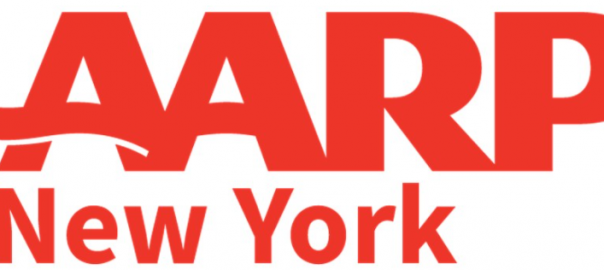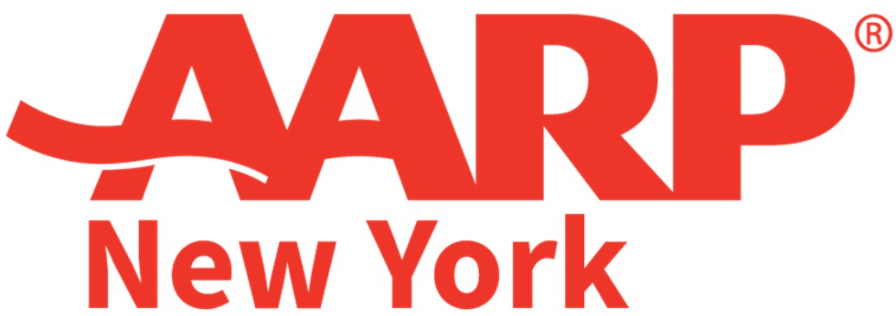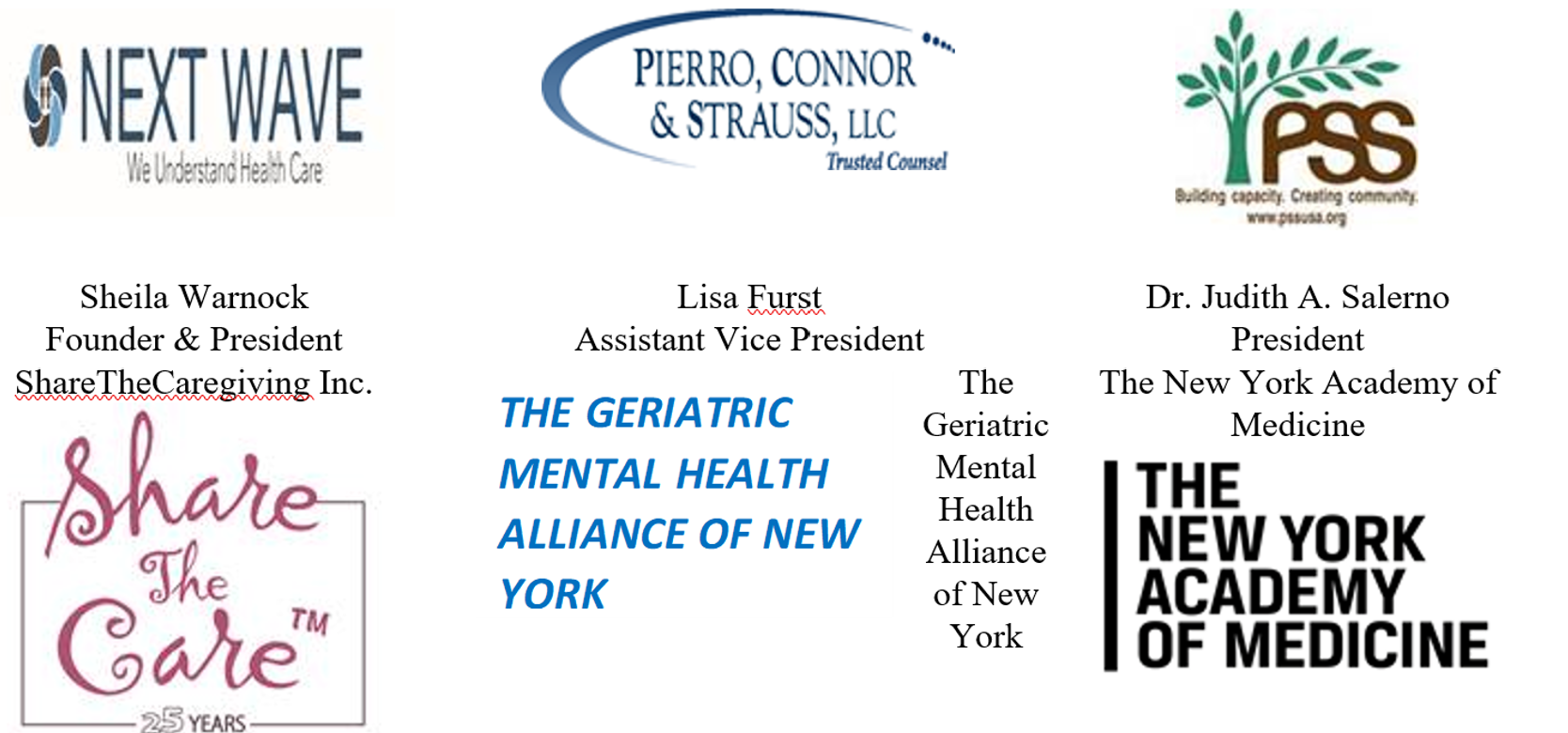
35 Organizations Urge NYS Legislative Leaders to Include Family Caregiver Tax Credit in State Budget
Health, Consumer, Aging & Other Groups Call for Groundbreaking Senate-Backed Pilot
ALBANY, N.Y. – Thirty-five health, consumer, aging and other organizations are urging New York State Senate Majority Leader Andrea Stewart-Cousins and Assembly Speaker Carl Heastie to include a middle class tax credit for unpaid family caregivers in the final state budget due April 1.
The groups co-signed a letter (reprinted in full below) to the legislative leaders asking them to provide badly-needed financial relief to unpaid family caregivers, who spend $8,200 out of their own pockets on average each year to care for loved ones – unpaid care valued at over $31 billion annually across New York.
“We were very excited to see the state Senate include a tax credit for unpaid family caregivers in its one-house budget proposal, but we need the Governor, Speaker Heastie and the Assembly to agree to the proposal to make it a reality,” said AARP New York State Director Beth Finkel.
A caregiver tax credit has the support of 84% of New York voters age 50 and over, according to an AARP New York survey.
While the average caregiver spends 20% of income on caregiving, the burden is even higher for caregivers of color: 44% for Hispanic caregivers, who spent over $9,000 on average in 2016, and 34% of income for African Americans, according to a national AARP survey.
Joining AARP in calling for enactment of a tax credit for unpaid family caregivers in the final state budget are the Hispanic Federation, the NAACP of New York, the New York Urban League, the Asian American Federation, and many others.
“A family caregiver tax credit would provide much-needed financial relief to family caregivers and help them to care for their loved ones at home, where the vast majority want to be,” the letter says. ”While respite is essential to providing family caregivers relief from their duties, they also need help with the financial toll of caring for their loved ones.”
Under the AARP-backed Senate proposal, individual tax filers with a gross annual income of $75,000 or less and couples with a gross annual income of $150,000 or less could claim a credit for up to $3,500 or half of eligible expenses.
Such expenses could include payments for home health aides, adult day care, personal care attendants, homemaker services, respite care, health care equipment, home modifications, and transportation – all of which help aging adults to continue living independently in their own homes.
New York’s nearly 2.5 million family caregivers play a critical role in keeping health care costs under control. And a caregiver tax credit would actually save taxpayers money by helping to keep loved ones out of more costly, less desirable and mostly taxpayer-funded nursing homes.
“Unpaid family caregivers were already struggling before the pandemic, but now the situation of many is dire,” added Finkel. “With state revenues up and billions of dollars of federal funds coming into New York, if this isn’t the year to fund this modest pilot tax credit, then I don’t know when is.”
Follow us on Twitter: @AARPNY and Facebook: AARP New York
About AARP
AARP is the nation’s largest nonprofit, nonpartisan organization dedicated to empowering people 50 and older to choose how they live as they age. With a nationwide presence and nearly 38 million members, AARP strengthens communities and advocates for what matters most to families: health security, financial stability and personal fulfillment. AARP also produces the nation’s largest circulation publications: AARP The Magazine and AARP Bulletin. To learn more, visit www.aarp.org or follow @AARP and @AARPadvocates on social media.
###
March 25, 2022
The Honorable Carl Heastie
Speaker
New York State Assembly
932 Legislative Office Building
Albany, NY 12248
The Honorable Andrea Stewart-Cousins
Majority Leader
New York State Senate
907 Legislative Office Building
Albany, NY 12247
Dear Speaker Heastie and Leader Stewart-Cousins:
We, the undersigned groups and individuals, were happy to see the State Senate include in its one-house state budget proposal a modest but ground-breaking tax credit for unpaid family caregivers. We were equally disappointed not to see a similar proposal in the Assembly one-house state budget proposal. We now write to urge you to come together and include a tax credit for eligible family caregivers in the final adopted state budget.
A family caregiver tax credit would provide much-needed financial relief to family caregivers and help them to care for their loved ones at home, where the vast majority of older adults want to be. While respite is essential to providing family caregivers relief from their duties, they also need help with the financial toll of caring for their loved ones.
Caregiving expenses eligible for a tax credit could include payments made by the family caregiver for goods and services such as home health aides, adult day care, personal care attendants, homemaker services, respite care, health care equipment, home modifications, and transportation – all of which help aging adults to continue living independently in their home.
Family caregivers not only spend time and energy caring for a loved one, but many also spend money out of their own pockets to help care for their loved one. An on-line AARP survey of family caregivers in New York conducted from March 15 through April 25, 2021 found that:
Forty percent of New York caregivers have experienced at least one financial setback as a result of caregiving. The most common setbacks are having to cut back on personal spending and dip into savings;
About one in ten New York caregivers (9%) report caregiving as being a high financial strain with an additional 28% reporting it to be a moderate financial strain; and
The pandemic has only heightened New York caregivers’ financial strain with 38% saying they spent more money on caregiving expenses as result of COVID-19.
In New York, 2.5 million family caregivers provide 2.1 billion hours of unpaid care – valued at $31 billion annually (AARP’s Valuing the Invaluable, 2019). Increasingly, these caregivers are contributing more time, more energy, and more money to support their loved ones. The rising cost of health care, the limitations of Medicare and other insurance coverage, the increased number of years that caregivers are providing care, and improved longevity have all put pressure on caregivers to dip into their own finances to help pay for various elements of care.
The COVID-19 pandemic has severely exacerbated the financial, physical, and emotional strain on New York’s family caregivers. AARP’s most recent national survey revealed that caregivers report spending more time (42%) and more money on providing care (41%) due to the pandemic.
As a result of COVID-19, the same survey found that at least 3 in 10 caregivers say that their care recipient and their own health and mental health have deteriorated to at least some extent.
For these reasons, we support the tax credit as proposed in the State Senate’s one-house state budget proposal.
A vast majority of New Yorkers support such a tax credit, too. In a 2021 survey of New York registered voters ages 50 and over, 84 percent supported a state income tax credit for family caregivers who use their own money for a loved one (December 2021 AARP survey of registered voters age 50+).
This modest but well-deserved tax credit for middle class New Yorkers would be a commonsense step to help family caregivers carry on with their invaluable responsibilities. At the same time, this proposal would help all New Yorkers by helping to keep loved ones out of more costly nursing homes, saving taxpayer dollars.
Please do not let this opportunity pass to create a family caregiver tax credit in the final state budget.





